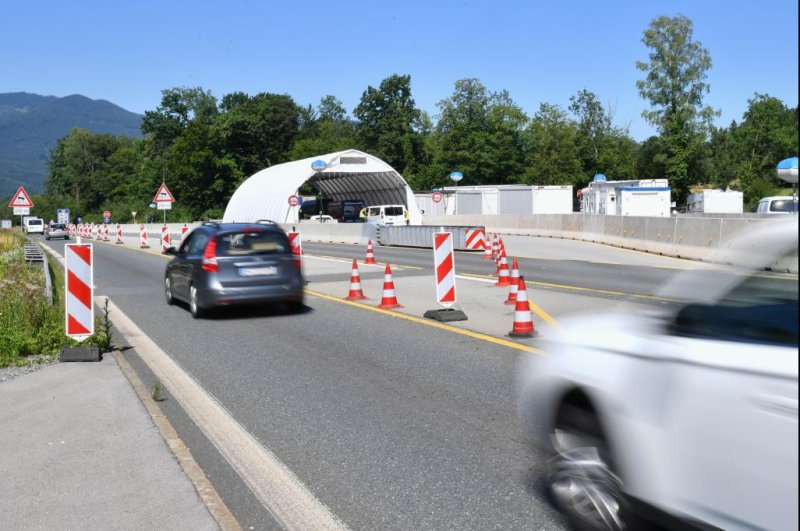Cars drive past a border checkpoint in Germany. The European Union said it's testing technology that will detect if travelers during border screenings are lying. Photo by Kerstin Joensson/EPA-EFE
Nov. 2 (UPI) -- Border checkpoints in three European countries will test a new system this month that's designed to catch travelers lying, officials said.
The project, called iBorderCtrl, is an automated system with artificial intelligence that queries travelers and determines if they are telling the truth. The screening technology analyzes "micro-expressions" by travelers.
The system is backed by the European Union, which announced the planned technology last week. Its goal is to detect illegal crossings, criminals and terrorists.
The first countries to test the system will be Greece, Latvia and Hungary, officials said.
"We're employing existing and proven technologies -- as well as novel ones -- to empower border agents to increase the accuracy and efficiency of border checks," said project coordinator George Boultadakis of European Dynamics. "[The] system will collect data that will move beyond biometrics and on to biomarkers of deceit."
During the screening, a traveler would interact with an avatar of the same ethnicity. First, they are pre-screened, then they're informed of rights and travel procedures and warned about illegal activity. Persons deemed to be high-risk travelers will undergo a more detailed check.
The virtual border guard could ask, "What's in your suitcase?" and "If you open the suitcase and show me what is inside, will it confirm that your answers were true?"
Successful passengers will get a QR code to proceed. If the machine detects deceit, biometric information will be taken before the person is passed to a human agent.
Hand-held devices will cross-check information, comparing facial images with passport photos. The system checks fingerprints, palm veins and matches facial characteristics to assess travelers.
The technology has raised some concerns with civil liberties groups, some of which see it as a form of government surveillance.















